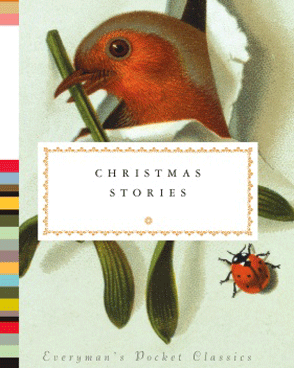Christmas Stories, Ed. Diana Secker Tesdell
Festive yarns with the Lincolnshire okapi

Your support helps us to tell the story
From reproductive rights to climate change to Big Tech, The Independent is on the ground when the story is developing. Whether it's investigating the financials of Elon Musk's pro-Trump PAC or producing our latest documentary, 'The A Word', which shines a light on the American women fighting for reproductive rights, we know how important it is to parse out the facts from the messaging.
At such a critical moment in US history, we need reporters on the ground. Your donation allows us to keep sending journalists to speak to both sides of the story.
The Independent is trusted by Americans across the entire political spectrum. And unlike many other quality news outlets, we choose not to lock Americans out of our reporting and analysis with paywalls. We believe quality journalism should be available to everyone, paid for by those who can afford it.
Your support makes all the difference.The prime excuse for a short story collection is always the common denominator: ghosts, crime, science fiction, stories by women, Russian stories. Here, it is Christmas with a fairly generous remit preferably a focus on the day, but snow, turkeys or seasonal settings will do. Alice Munro gets in comfortably with a story told by a 14-year-old turkey-gutter; Conan Doyle's "The Blue Carbuncle" qualifies because the plot turns on the use made of a goose. There has been a determined effort to avoid the usual suspects, so that Dickens is represented not by Scrooge but the goblin story from The Pickwick Papers, which carries something of the same message but is a lot more fun.
Some years ago, I presided over a short story workshop at a literary festival. The only guidance required by the participants was advice on marketing. They already knew all they needed about writing short stories, their spokesman told me, starting with rule number one: the short story is 3,500 words long. Ah. They would be dismayed by the extension of the rules here, where Saki's absurd and elegant squib is about 1,150 words, while Gogol's "The Night Before Christmas" weighs in at 53 pages. For this reader, the Saki gave infinitely the greater pleasure, not least for the narrator's put-down of a boastful shooting man by mentioning the dimensions of the okapi he bagged in the Lincolnshire fens. The Gogol is one of those semi-fantasy tales featuring the Devil, ladies of ill-repute, good-hearted fellows and mutual trickery, which has rather lost its charm for the 21st-century ear.
The Russians are well represented: Tolstoy, Nabokov, Chekhov alongside Gogol. America scores eight, England six, with Alice Munro batting for Canada and, indeed, the rest of the world. One is left with a sneaking feeling that in one or two cases a big name is there precisely because that is what they are: Chekhov's "Vanka" is not one of his great stories, and slips in because of its Christmas theme. Muriel Spark's "Christmas Fugue" seems to be a ghost story involving a romantic encounter on a long-distance flight, more baffling than satisfying. But Nabokov's evocation of a father's grief-stricken day in a Russian country house shut up for the winter sparkles with arresting prose and ends with a brilliant image. Richard Ford's story is equally evocative, doing just what the short story should: conjure up people, place and situation with the greatest precision.
The collection could be read as an object lesson in literary style over time and space, ranging as it does from Dickens to Ford, from the expansive voice of the 19th century to the 20th-century colloquial of Damon Runyon and John Updike. Updike's "The Carol Sing" is another brief offering, sending one back to Saki, who manages both atmosphere and a real tale plus wit in much the same space. This question of narrative versus mood is one of the challenges of the short story. The exemplary story achieves both; the Roald Dahl school goes for the kick in the tail, the Chekhov tradition prefers atmosphere that subtly includes a narrative line. Munro flies the flag for that approach today.
Dahl's absence sets one thinking about the many other forms that this collection could have taken. That is true of any short story collection, and any collection is a matter of editorial whim. Diana Secker Tesdell is the editor here, and it is a pretty reasonable whim. One must hand a bouquet to Everyman for production quality: a chunky hardback elegantly bound, with ribbon marker, for 10.99. That's stylish.
Penelope Lively's latest novel is 'Consequences' (Fig Tree)
Everyman 10.99 (395pp) (free p&p) from 0870 079 8897
Join our commenting forum
Join thought-provoking conversations, follow other Independent readers and see their replies
Comments